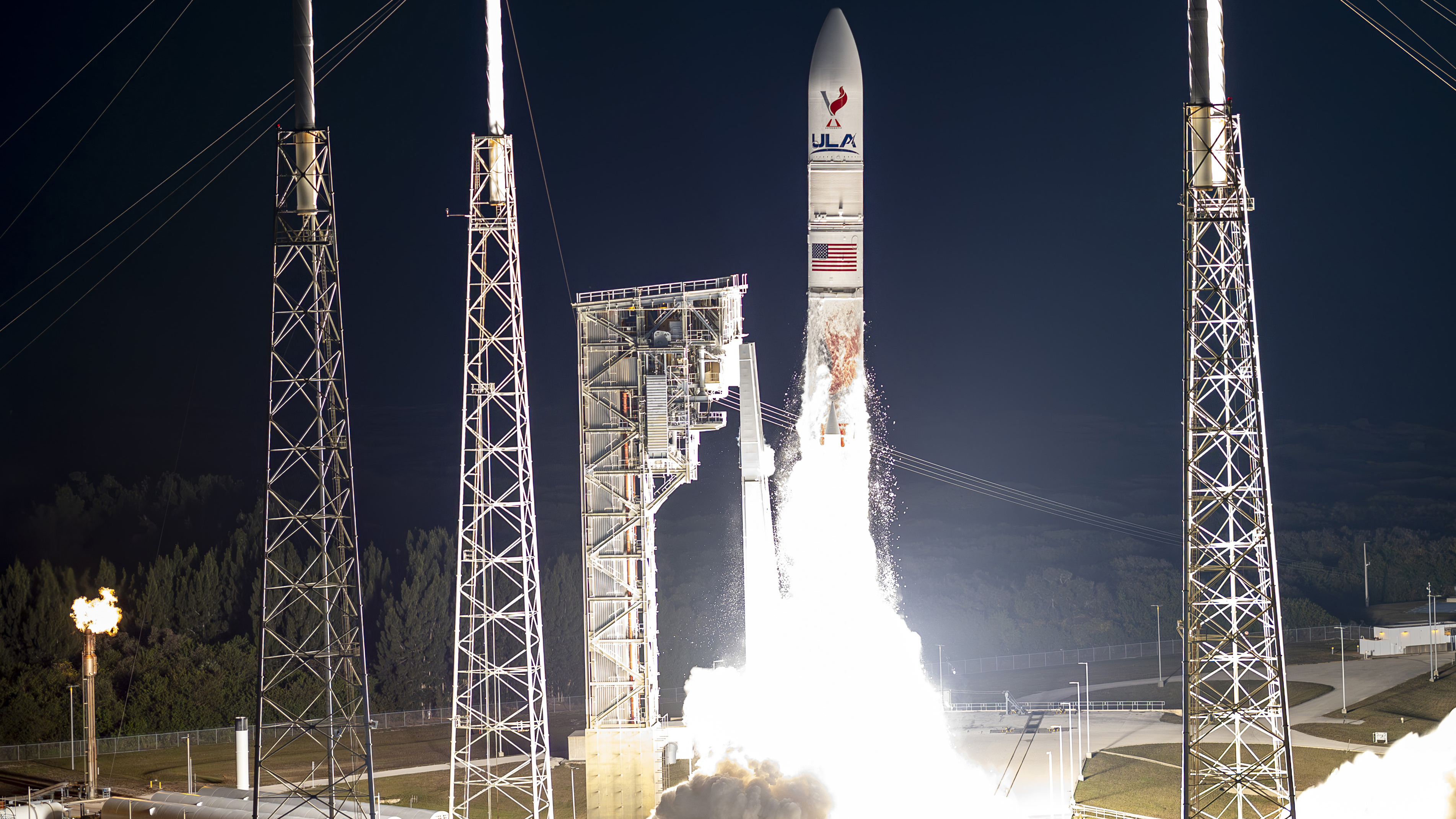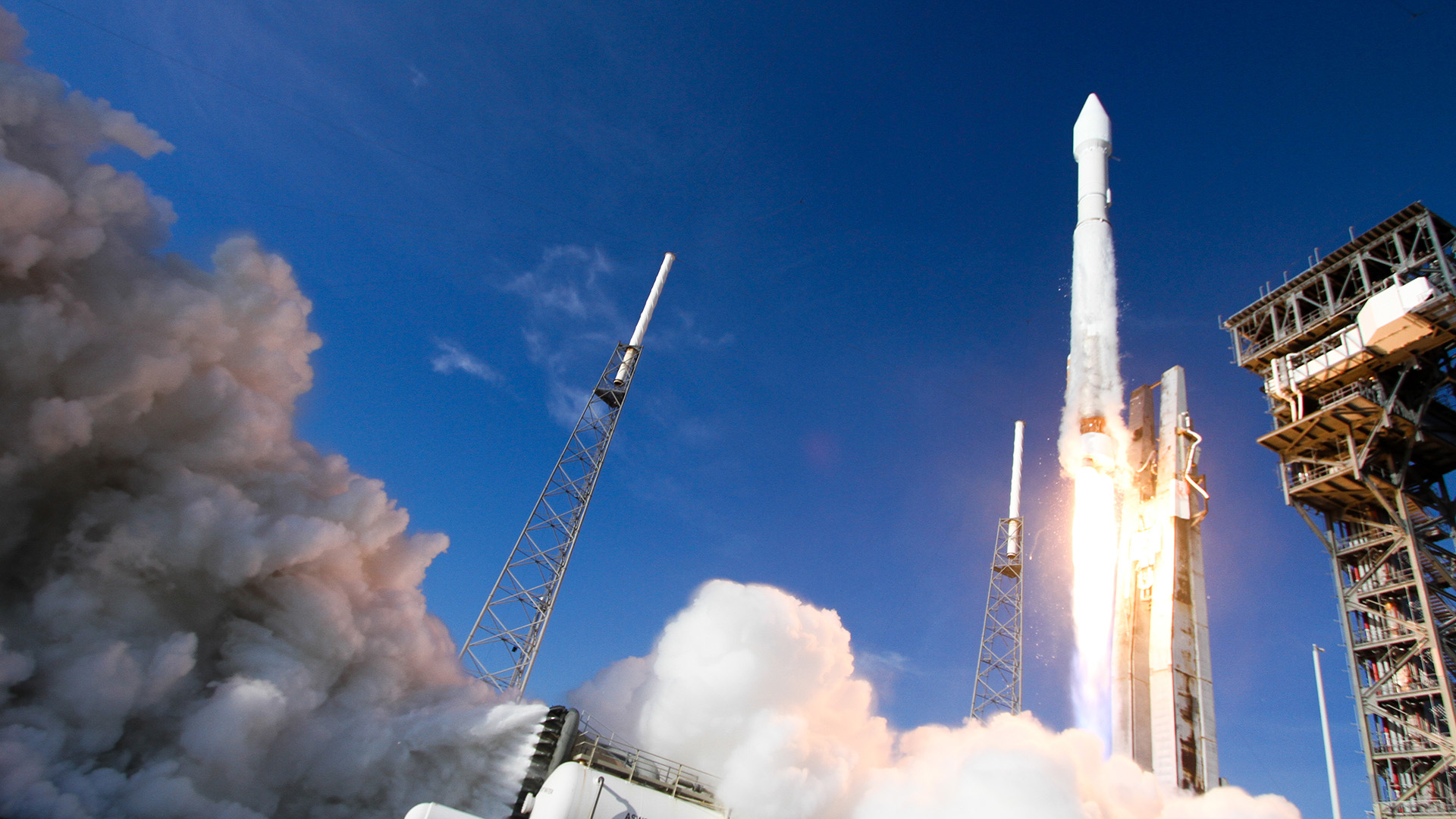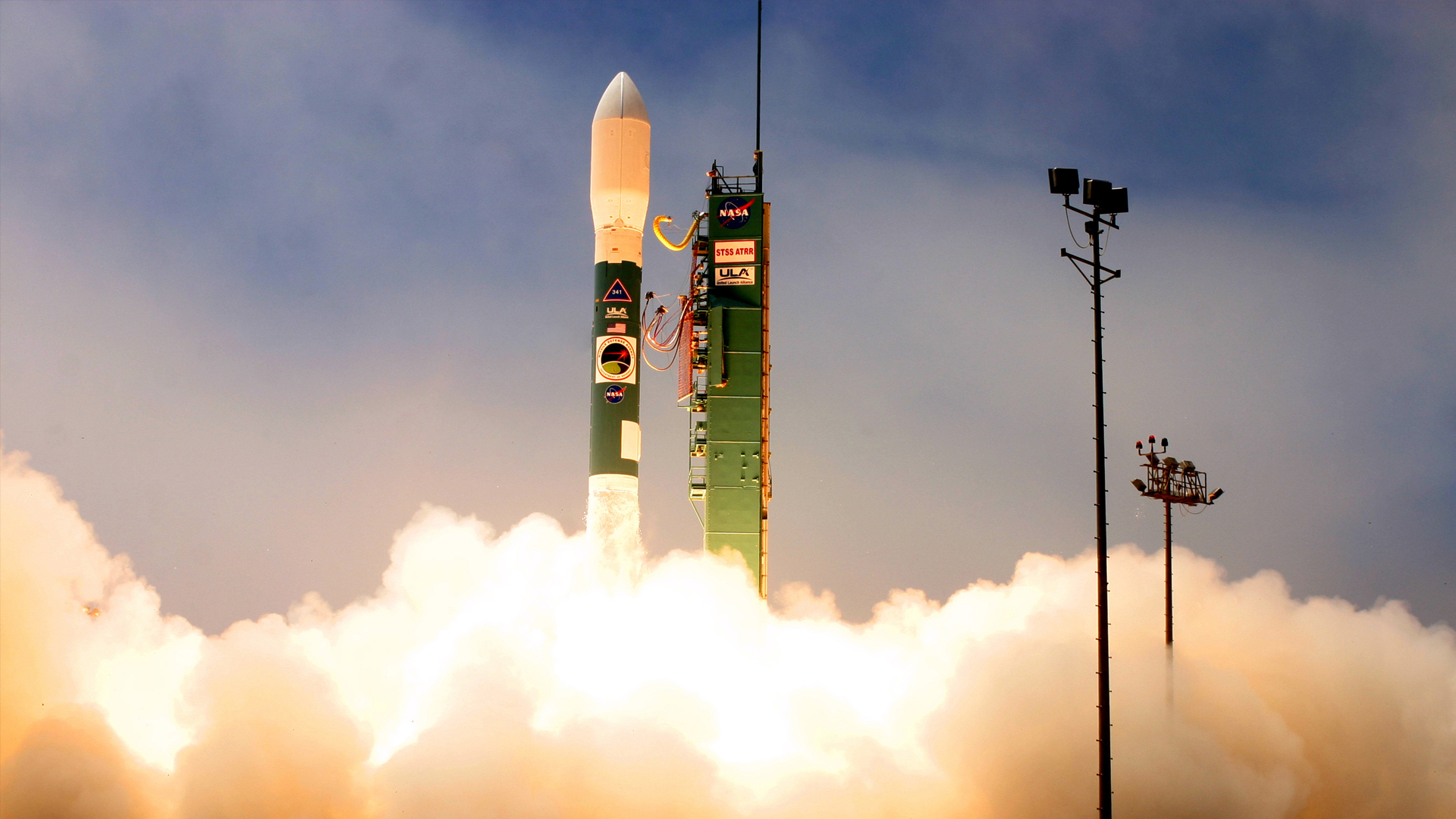Delta IV
Reliability.
Capability.
Dedication.
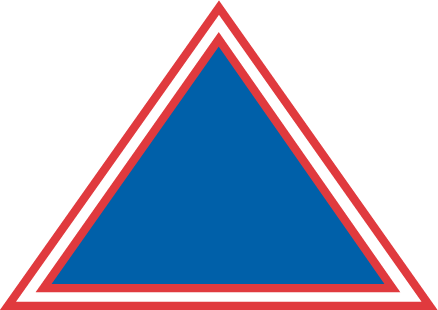
The Nation’s Heavy Lifter
The Delta IV Heavy rocket was the pinnacle in the Delta family evolution. The Delta IV Heavy rocket was a workhorse for the National Reconnaissance Office (NRO) launching 12 missions delivering critical national security payloads. The heavy-performance rocket is recognized for delivering high-priority missions for national security and NASA's first Orion spacecraft on an uncrewed flight test and sent the Parker Solar Probe to study the atmosphere of the Sun.
The Delta rocket played a pivotal role in the evolution of space flight since the 1960’s. The Delta rocket family had a remarkable success rate over six decades of flights and concluded with 389 launches. The final Delta mission signals ULA’s evolution to the new Vulcan rocket, providing even higher performance than our three-core Delta IV Heavy rocket in a single-core rocket to launch heavy-class missions for the nation.
Configurations
The Delta IV launch system was available in three configurations: the Delta IV Medium+, with two or four solid rocket motors (SRMs) and the Delta IV Heavy. Each configuration was comprised of a common booster core (CBC), a cryogenic upper stage and a 5-meter-diameter payload fairing (PLF).
The Delta IV Heavy employed two additional CBCs as liquid rocket boosters to augment the first-stage CBC.
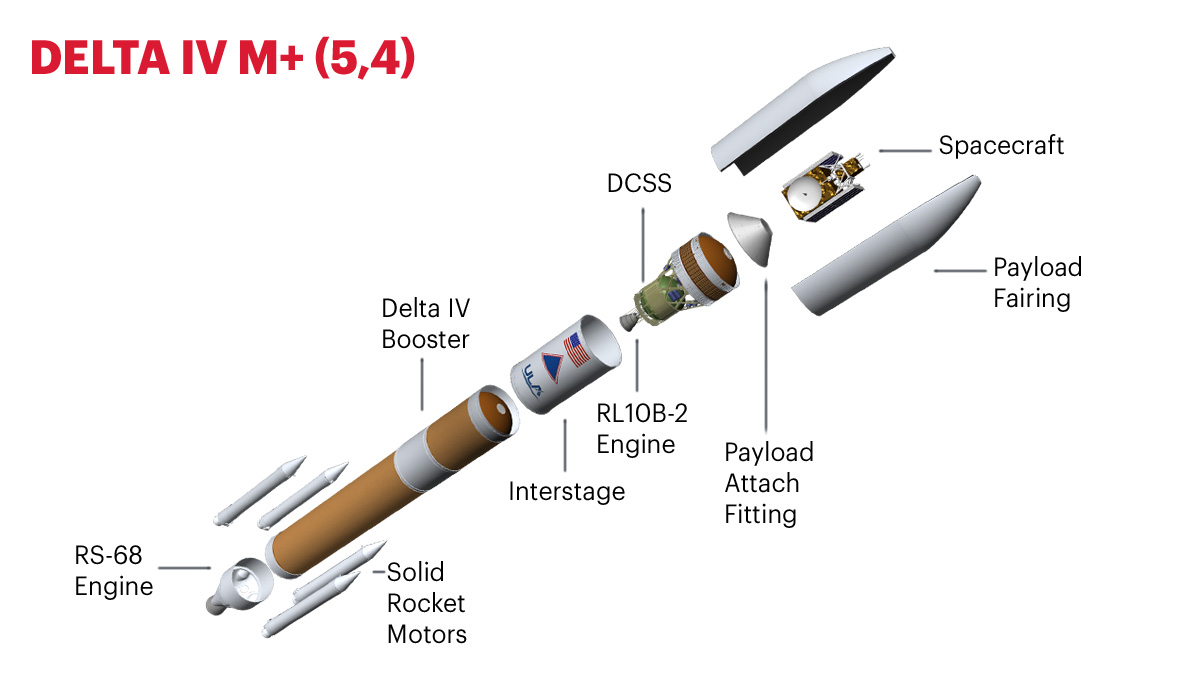
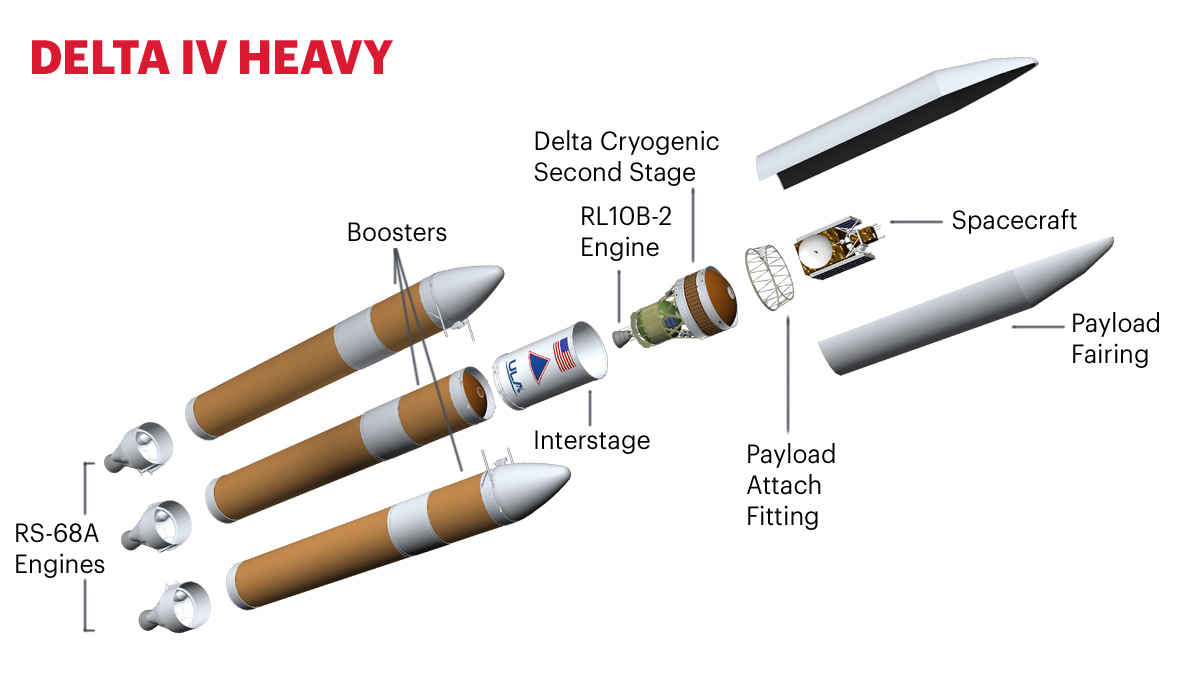
Performance
Optimal orbit for each customer, delivered industry best spacecraft orbital insertion accuracy.
GEO 0.0° | GTO 27.0° | LEO 28.7° | LEO 90.0° | LEO ISS 51.6° | |
| M+(5,2) | 1,840 kg 4,060 lbs | 5,080 kg 11,200 lbs | 11,060 kg 24,380 lbs | 9,610 kg 21,180 lbs | 10,220 kg 22,530 lbs |
| M+(5,4) | 2,710 kg 5,970 lbs | 6,890 kg 15,190 lbs | 13,730 kg 30,250 lbs | 11,600 kg 25,580 lbs | 12,830 kg 28,270 lbs |
| Heavy | 6,580 kg 14,500 lbs | 14,210 kg 31,330 lbs | 28,370 kg 62,540 lbs | 23,560 kg 51,950 lbs | 25,980 kg 57,280 lbs |
GEO (Geosynchronous Orbit)=35,786 km Circular at 0 deg
GTO (Geosynchronous Transfer Orbit)=35,786 km x 185 km at 27.0 deg
LEO (Low Earth Orbit-Reference) =200 km circular at 28.7 deg or 90 deg
LEO ISS (Low Earth Orbit-International Space Station) =407 km circular at 51.6 deg
Payload Fairings
Delta IV offered a 5-meter-diameter PLF, optimized for the configuration and mission need. The Delta IV Medium used a standard carbon composite bisector design. The Delta IV Heavy was available with an elongated carbon-composite bisector or metallic trisector PLF.
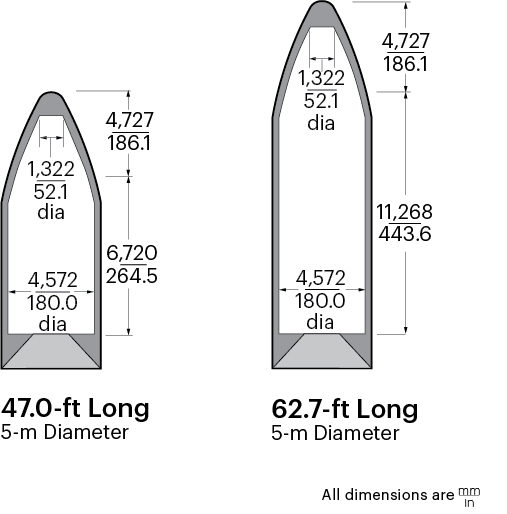
Propulsion
Main Engine
Design simplicity and demonstrated capability defined the Delta IV RS-68A main engine. Designed and manufactured by Aerojet Rocketdyne, the throttleable RS-68A engine was the largest existing hydrogen-burning engine. Conceived using a simplified design approach, it had fewer parts, was lower risk and had inherently reliable operation.
Nominal Thrust (sea level): 702,000 lbs
Specifc Impulse (sea level): 362 seconds
Length: 204 in
Weight: 14,876 lbs
Fuel/Oxidizer: Liquid Hydrogen/Liquid Oxygen
Solid Rocket Motors
For additional thrust at liftoff, the Delta IV Medium+ used either two or four Northrop Grumman solid rocket motors (SRMs). The SRMs were strapped to the common booster core and jettisoned in-flight for maximum performance.
Peak Vacuum Thrust: 280,000 lbf
Specific Impulse: 275.2 seconds
Length: 636 in
Weight: 74,500 lbs
Nominal Burn Time: 90 seconds
Upper Stage
The Delta IV relied on the RL10 propulsion system to power the second stages. Logging an impressive record of nearly 400 successful flights and nearly 700 firings in space, RL10 engines, manufactured by Aerojet Rocketdyne, harnessed the power of high-energy liquid hydrogen. The RL10 boasted a precision control system and restart capability to accurately place payloads into orbit.
The Delta IV employed the RL10B with the world’s largest carbon-carbon extendible nozzle for increased performance.
Nominal Thrust: 24,750 lbs
Specifc Impulse: 465.5 seconds
Fuel/Oxidizer: Liquid Hydrogen/Liquid Oxygen
Length: 86.5 in (stowed); 163.5 in (deployed)
Diameter (nozzle extension): 84.5 in
Weight: 664 lbs


